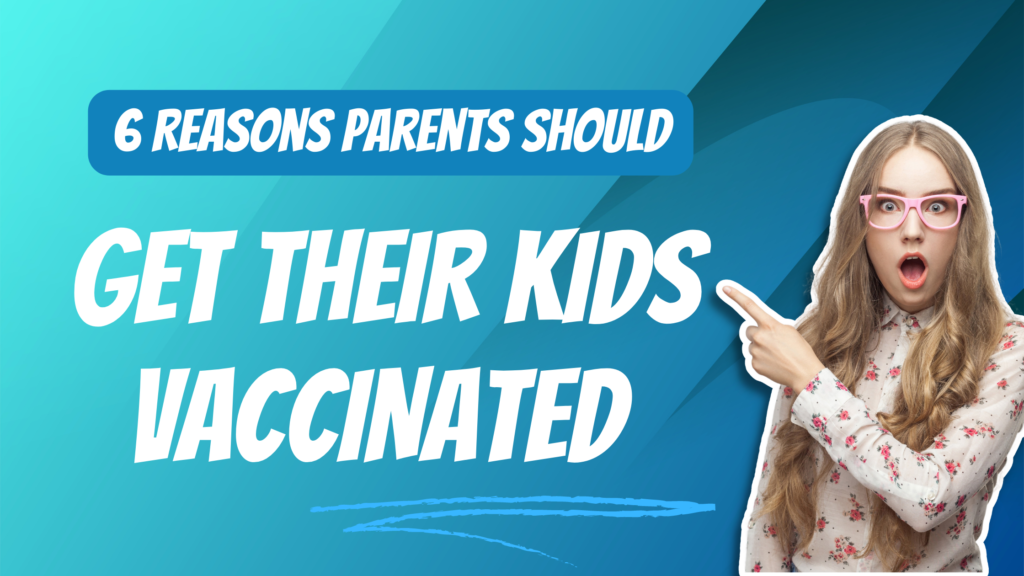In collaboration with Grace Health pediatric providers
As parents, you want the best for your children, ensuring they grow up healthy, happy, and protected from preventable diseases. Vaccinations play a crucial role in safeguarding your little ones’ well-being and helping to create a healthier community overall. In this blog post, we will explore six compelling reasons why parents should prioritize getting their children vaccinated.
1. Disease Prevention
One of the most significant benefits of childhood vaccinations is disease prevention.1 Vaccines are designed to stimulate the immune system and build immunity to specific diseases. By vaccinating your children, you shield them from potentially life-threatening illnesses such as measles, mumps, rubella, polio, hepatitis, and influenza. Vaccines not only protect your own children but also contribute to the collective immunity of the population, known as herd immunity, which shields those who cannot be vaccinated due to medical conditions or age.
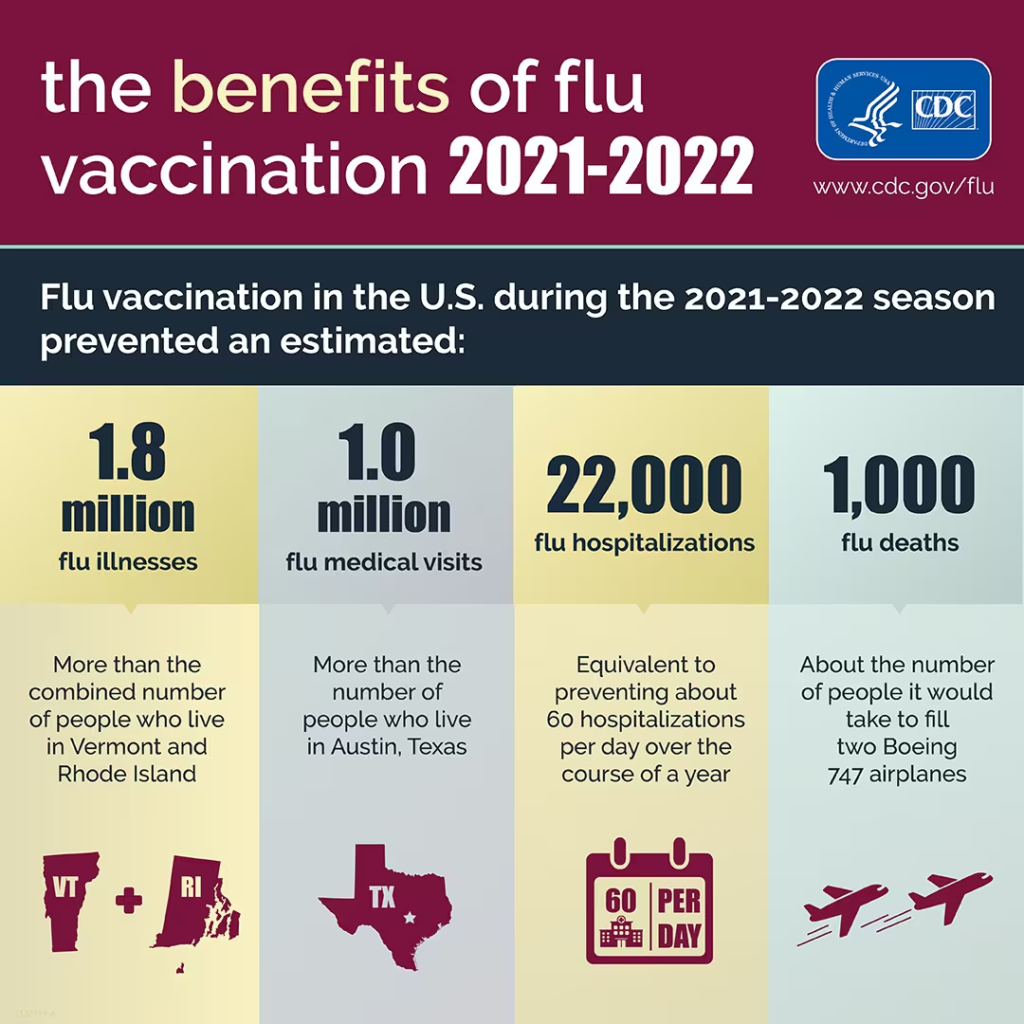
2. Safety and Effectiveness
It’s natural for parents to be concerned about the safety and effectiveness of vaccines. However, extensive research and rigorous testing go into the development and approval of vaccines. Health authorities, such as the Centers for Disease Control and Prevention (CDC) and the World Health Organization (WHO), carefully review and monitor vaccine safety. The risks associated with vaccinations are far lower than the risks of complications from the diseases they prevent. Vaccines have been proven time and again to be highly effective at reducing the incidence and severity of infectious diseases.
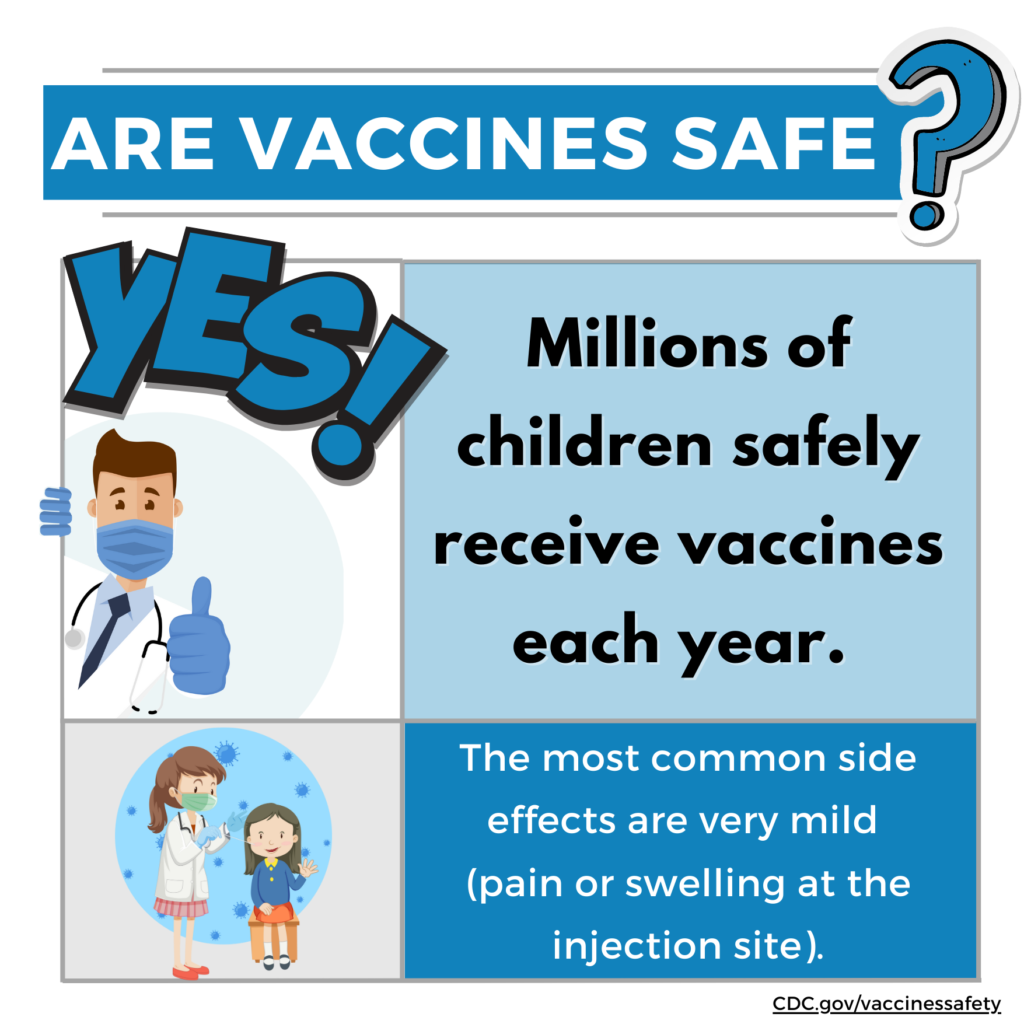
3. Protection Throughout Life
Childhood vaccinations provide protection not only during childhood but also throughout life. Some vaccines, like those for tetanus and diphtheria, require booster shots in adulthood to maintain immunity (CDC). By ensuring your children are up-to-date with their vaccinations, you set the foundation for a lifetime of protection against various diseases.
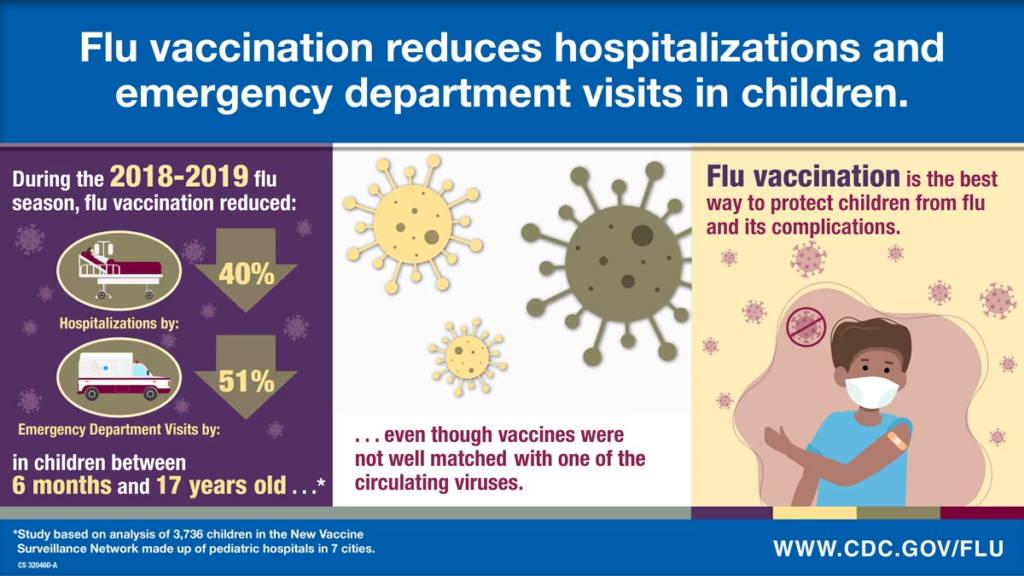
4. Preventing Outbreaks
In recent years, we have seen resurgences of diseases once thought to be under control due to vaccine hesitancy. When a significant portion of the population is unvaccinated, infectious diseases can spread rapidly, leading to outbreaks and putting vulnerable individuals at risk.
Vaccinating our children helps prevent such outbreaks, protecting not only our own family but also the broader community. This is called community immunity, or herd immunity, and can keep you and those around you healthy.2
With vaccinations, there are many diseases that most people have almost forgotten about, including measles and pertussis, also known as whooping cough. However, in the last 10 years, there has been a resurgence of both diseases.3,4
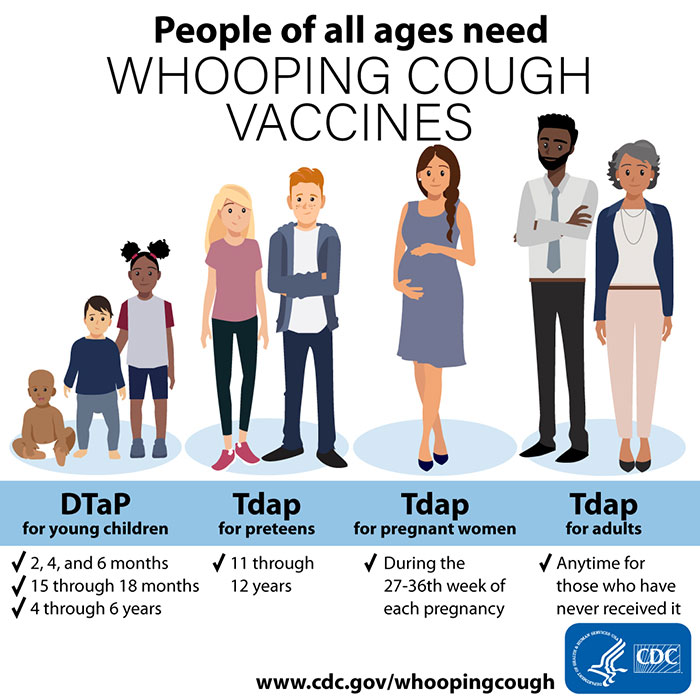
The Kentucky Department of Public Health shared in July 2023 that they have identified an increase in pertussis in Kentucky, with most cases occurring in unvaccinated children, including one who has been hospitalized. The best way to treat pertussis is to prevent it with routine vaccination with DTaP for kids up to 6 years old and Tdap for those 7 and up, including pregnant people, to help protect the newborn from whooping cough.
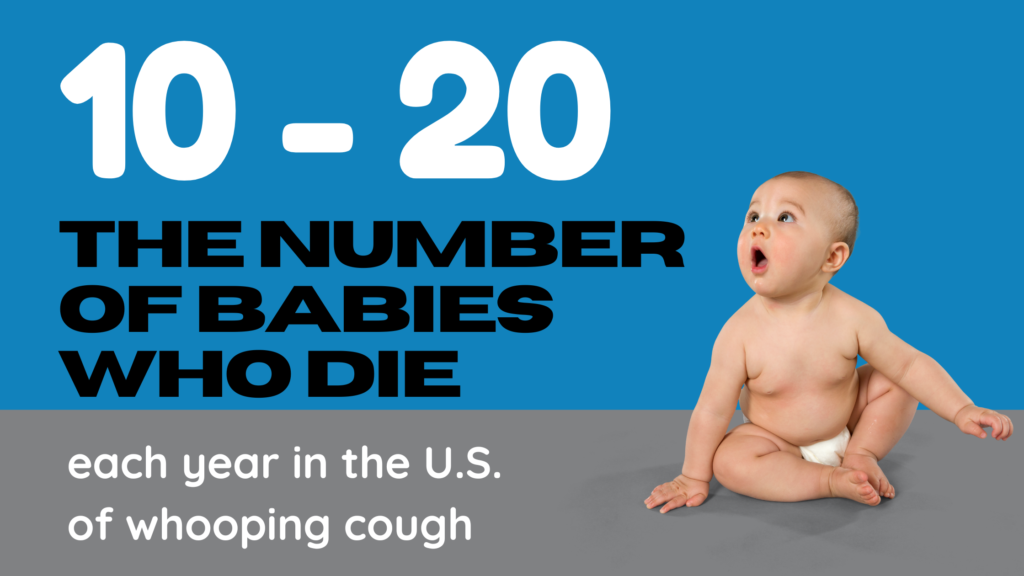
5. School and Community Requirements
Many schools, daycare centers, and extracurricular activities require children to be vaccinated to attend. By ensuring our children are up-to-date with their vaccinations, we enable them to participate fully in educational and social activities, fostering their intellectual and social development.
Germs travel quickly through communities and can make a lot of people sick. When enough people are vaccinated
Additionally, adhering to vaccination requirements helps create a safer environment for all children involved, particularly those with medical conditions that prevent them from receiving certain vaccines.
By getting your child’s vaccines on time you’re not only protecting your baby – you’re helping to protect your friends, family, and community, too.
CDC
6. Family Time and Money
From trips to the local splash pad to visiting a beloved family member, your children are exposed to millions of germs every day. One of the best ways to fight these germs is to stay up to date on vaccinations.4
Vaccine-preventable diseases can drain you mentally and financially. Over time, these diseases become expensive to treat compared to the short time spent at the doctor’s office getting your children their shots.
Immunization vaccines typically are covered by insurance, making them inexpensive or free methods to protect your kids from deadly diseases.
Cabinet for Health and Family Services 4
If you don’t have health coverage, Grace Health offers a Sliding Fee Discount program to help with the cost of care. There is also the Vaccines for Children (VFC) program, a federally funded program that offers vaccines at no cost for eligible children through VFC-enrolled doctors.
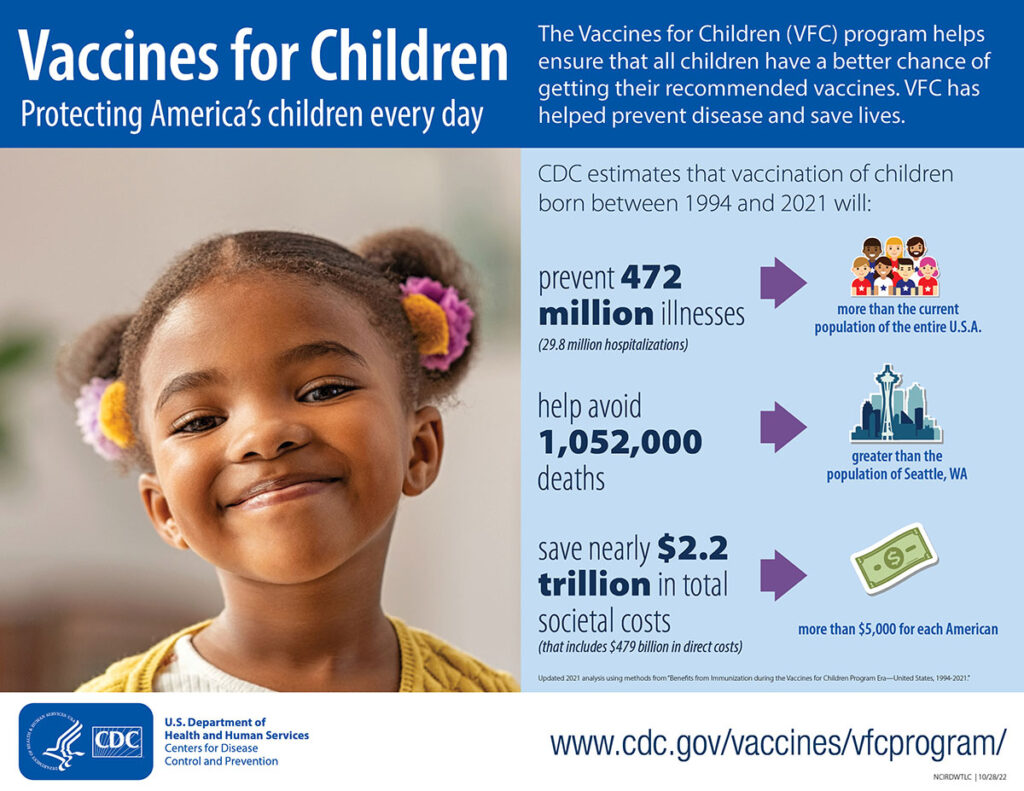
Keeping Your Kids Safe
Choosing to vaccinate your children is an essential decision that significantly impacts their health and the health of others. The benefits of childhood vaccinations far outweigh any potential risks, as they protect your children from serious diseases, ensure safety and effectiveness through thorough testing, provide long-term immunity, prevent outbreaks, and allow for a more inclusive and safer educational and social environment. It is important for parents to prioritize the well-being of their children and the community by getting them vaccinated, contributing to a healthier and brighter future for all.
Make sure your children have regular check-ups with their Grace Health pediatric provider and share any health concerns your might have. Your child’s health is an important and we are here to help them stay healthy.
References:
- Centers for Disease Control and Prevention. (2023, July) Making the Vaccine Decision: Addressing Common Concerns. National Center for Immunization and Respiratory Diseases. https://www.cdc.gov/vaccines/parents/why-vaccinate/vaccine-decision.htmltml
- U.S. Department of Health and Human Services. Vaccines Protect Your Community. https://www.hhs.gov/immunization/basics/work/protection/index.html
- Centers for Disease Control and Prevention. (2022, September) Diseases You Almost Forgot About (Thanks to Vaccines). National Center for Immunization and Respiratory Diseases. https://www.cdc.gov/vaccines/parents/diseases/forgot-14-diseases.html20cancer
- Cabinet for Health and Family Services. Immunizations & Vaccinations for Children. Kentucky Primary Care Association. https://www.chfs.ky.gov/agencies/dph/dmch/Pages/child-vaccine-guide.aspx
- Centers for Disease Control and Prevention. (2022, October 24) Vaccines for Children Program (VFC). National Center for Immunization and Respiratory Diseases. https://www.cdc.gov/vaccines/programs/vfc/index.html

